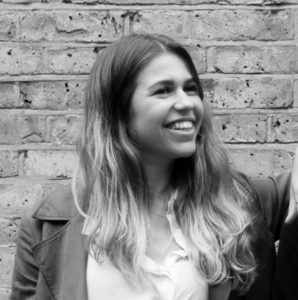
by Lisa Devaney | 10 Oct, 2017 | News
(This blog post is by Lisa Devaney, the Founder and Director of the Hai Media Group)
Over the last few years, I’ve had the pleasure of helping to mentor Valentine from SSSHAKE, an early-stage London tech startup, right from when the seed of the idea was taking root.
When I first met Valentine Del del Giudice, she immediately demonstrated more than a starry-eyed view of launching her start-up. She showed a well-thought out business plan, credible research into her marketplace and an enthusiastic drive that we knew would not quit – no matter what!
Well, that “no matter what” moment seems to have transpired when on 23rd June 2016, the vote for the UK to leave the European Union took place. At this point, Valentine was not even out the start gate yet with her SSSHAKE!
What’s the startup idea?
Her idea, like most of the best, is simple – there’s an app which connects you to new, unexpected matches when you shake your smartphone, Additionally, SSSHAKE hosts events and collaboration tools to offer London creatives the chance to form a solid creative network to connect and potentially collaborate with others to launch new projects. In a big city like London, Valentine’s channel literally shakes up how creative people could find and work together – no matter where they come from.
Valentine, an EU citizen from Paris, woke up on the that morning and experienced a big shock. She says she felt very sad, angry and that it seemed like everything she had valued about the UK – its welcoming, multicultural attitude – had vanished. Would she have to leave? Would she have to lose members of her team as they lost the right to work in the UK?
Moving forward
That was more than a year ago, but, like her app, she shook off the fear of uncertainty, and decided to remain focused on launching SSSHAKE in the spring of 2017, and not let Brexit blues interfere with her ambition to make her startup succeed.
This included running a successful crowdfunding campaign for SSSHAKE, and smashing it above her 5K target goal – she secured more than £6K. The app also secured some press at launch time. Go Valentine!
The mood these days

SSSHAKE Founder Valentine del Giudice
This week, I caught up with Valentine to find out what her mood is now in these pre-Brexit times, and how it feels to be a tech startup in “pre-Brexit” Britain, with herself an EU citizen at the helm.
SSSHAKE is proving popular, attracting a few hundred attendants at every event she runs and significant downloads from the Apple App Store, even in these still very early days. Having started the idea for her business while she was still attending university at the London College of Communication, this is her first big pursuit out of school days, and she’s smartly been cultivating support and mentoring from various advisors.
Shock from that first Brexit referendum results morning has eased for Valentine. While there may be big changes, she is ready, and up for anything that comes next, even if it means relocating SSSHAKE headquarters to a different city.
“We are not afraid of change and relocation,” she says. She’s just returned from a business trip to Paris, which is ramping up and courting tech startups to make their homes in the city,
Hotspots like Lisbon and Berlin are doing the same.
“As a tech business, we can be anywhere.”
If London doesn’t change
Right now, she explained, London is still still proving to be welcoming and an easy place to connect and grow the SSSHAKE network and business model. Filled with an international community, the city remains a gateway to the world.
Valentine’s mood is that she’ll keep her startup here for at least a few years, or more if that allows, while keeping an eye to the news and what might be in-store for her both personally and professionally as Brexit shakes out.
No matter where she lands, the future feels very promising, she happily reports.
Are you a tech startup in the UK? What mood are you in right now? I’d love to hear your story for my Hai Media Group’s blog. Email: lisa@haimediagroup.com
NOTE: Inspiration to share this story, and help with editing the blog post, came from Keren Lerner, the Founder and head of Top Left Design.
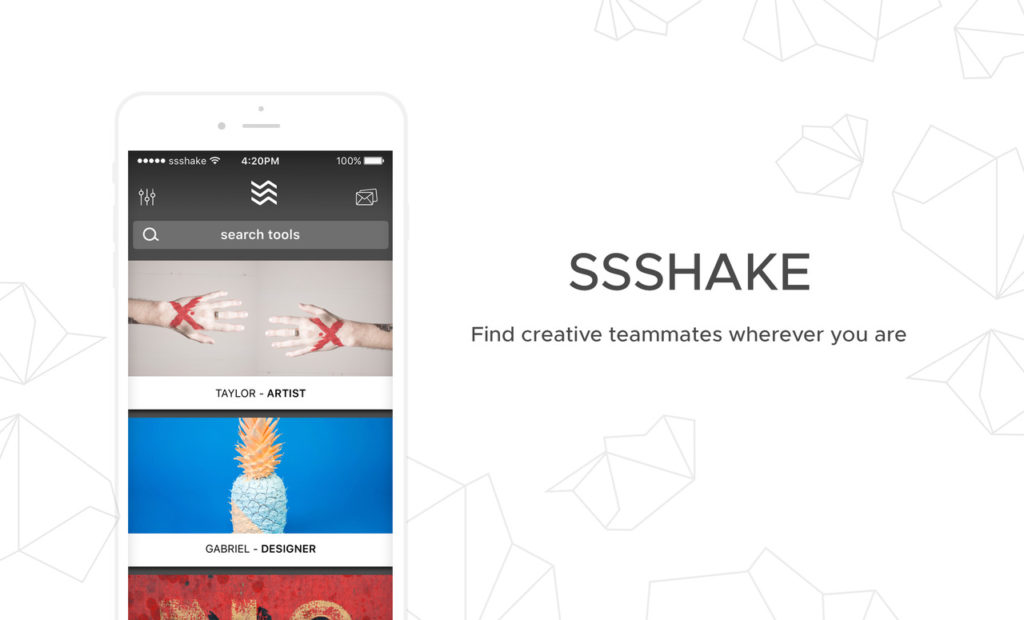

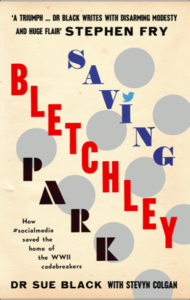
by Lisa Devaney | 25 Apr, 2016 | News
This story was first published by our Founder and Director Lisa Devaney with Brand Republic’s The Wall Blog UK, and you can find it here, or read below:
So often these days, news headlines are pock-marked with nasty tales of hacking incidents, online trolling, bullying and abuse that are setting a lot of people off from participating with any social media platform. But now and then, examples of how fantastic, caring and beneficial social media can be comes into public awareness and forces us to not ignore the good of this medium for all.

Saving Bletchley Park
In a new book Saving Bletchley Park written by Dr Sue Black OBE (@Dr_Black), with help from Stevyn Colgan, a fascinating story is told about how Twitter, and the power of digital and social media, strengthened and was instrumental in saving a near derelict World War II codebreakers headquarters at Bletchley Park. Recently released, and funded fully through a crowdfunding campaign orchestrated by the publishing company Unbound, the book is already a bestseller on Amazon.
If you are looking for that ray of sunshine in your social media case studies, or just want a positive example to explain to colleagues about how social media can work, this is a must read. I marvelled that it is a tale where old technology is saved by new technology, where modern Twitter, and other social channels, play a crucial role in helping preserve the place where modern computing took root, being the birthplace of Colossus and the work base of Alan Turing, who was key in cracking the codes generated by the Enigma machine.
In the book, the author shares so much about the step-by-step evolution of this valiant and dedicated effort of her, and colleagues, years of work to make sure it was not eradicated physically from the UK’s places of historic interest. Hundreds of people sought to preserve Bletchley Park over 20 years. It is likely that many in the UK, and beyond, will know that Bletchley Park is credited for having brought World War II to an end, two years earlier than expected, and to have saved an estimated 22 million lives with the top secret work of codebreaking. Nearly 10,000 people worked in cloaked roles, many being women, and all signed and sworn to a strict secrets act preventing them from speaking about their labour at the place. Sir Winston Churchill said of the codebreakers that they were “the geese that laid the golden egg and never cackled.”
What many may be surprised to learn is how decayed and near demise the site of this crucial turning point for the war was facing not long ago, until its rescuers became activists for the historic venue’s survival. What Dr. Black’s book reveals is a combination of historic information, human anecdotes, and a really good case study for how social media can flip a forgotten relic into public consciousness, over time.
Along the way, Dr Black, using Twitter, along with blogging and other social media channels, found that the digital generation’s freely available tools could help her make people care, and do something to save Bletchley Park. In her tale, you’ll read about how some of the UK’s popular Twitter aficionados like Christian Payne (@documentally), Jamillah Knowles (@jemimah_knight), Mike Sizemore (@sizemore), the Tuttle Club, and more, played a role in raising awareness for the Bletchley Park cause. So much so, that the effort won the attention of celebrity Stephen Fry and, also attracted support and attention from various members of the Royal family, and executives from Google.
Sure, social media wasn’t the only contributing factor, but, as you will find out in the book, it was a major catalyst and turning point for the campaign. The book includes Dr. Black’s tips and real-life, reality based, proven approaches to using social media, and her own journey from intrepidation and low confidence with the medium, to being a fearless advocate of its powers.
As Dr Black describes in this passage from her book:
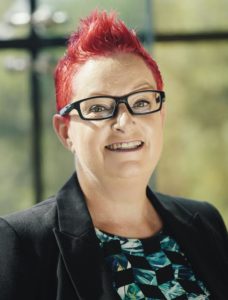
Dr Sue Black OBE, photo by ali Tollervey
“Social media has allowed me to be myself, the me that was always there inside but a bit scared to come out. I grew up a shy person, scared to voice my opinions in case I offended someone. Over the years, I’ve forced myself to speak when something needs changing. Social media has shown me that there are many people out there that feel the same way I do and that it’s fine to say what I think in public. It’s a simple lesson, but having grown up a girl in the 1960s and ‘70s, it’s diametrically opposed to what I grew up being told. “Don’t speak until you are spoken to” was a frequently used phrase in my upbringing, something I have in common with a whole generation of girls. I’m so glad that women are finally finding their voice. It may cause some change that will be difficult for society as a whole to deal with, but in the long run it will benefit us all.”
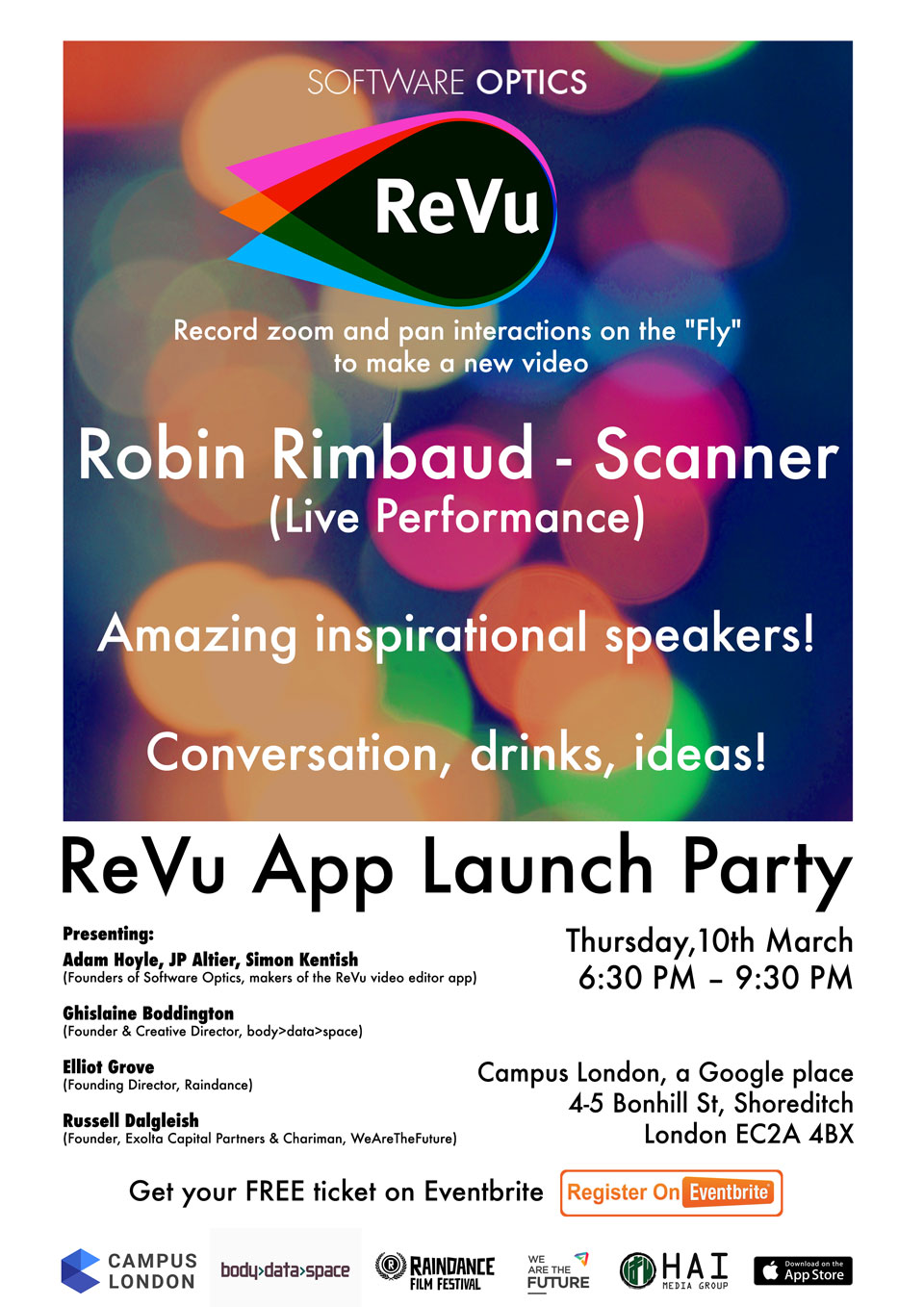
by Lisa Devaney | 1 Feb, 2016 | Apps
Our client Software Optics will soon launch the ReVu video editor app, to help you make awesome videos with your iPhone, iPad and GoPro. The app will go live in the Apple App Store in March. To celebrate, we are planning a fantastic app launch party, on 10th March at Campus London, a Google place. Are you in London? Please come along.
Please book your tickets via Eventbrite, here.
ReVu will help you Zoom, pan, trim to make a new, better, video with your iPhone or iPad. It also fixes fisheye distortion of GoPro footage. You can watch the demo video of the ReVu app on YouTube here.
What does the event have in store? Amazing speakers, drinks, and a performance!
There will be a short introduction from Software Optics founders, the makers of ReVu: Adam Hoyle, JP Altier, Simon Kentish.
You’ll also be treated to seeing:

Scanner (Robin Rimbaud)
Scanner (British artist Robin Rimbaud) traverses the experimental terrain between
sound and space connecting a bewilderingly diverse array of genres. Since 1991 he has been intensely active in sonic art, producing concerts, installations and recordings, the albums Mass Observation (1994), Delivery (1997), and The Garden is Full of Metal (1998) hailed by critics as innovative and inspirational works of contemporary electronic music. He scored the hit musical comedy Kirikou & Karaba (2007), designed the sound for the new Philips Wake-Up Light (2009), and campaigns for Nike (2011), Chanel (2012), and The Financial Times (2014). More recently Scanner designed the campaign for Sprint phones in cinemas across America, reaching 2.5 billion spectators, scored The Big Dance in Trafalgar Square for 1000 dancers and the re-opening of the Stedelijk Museum, Amsterdam. Committed to working with cutting edge practitioners he collaborated with Bryan Ferry, Wayne MacGregor, Mike Kelley, Michael Nyman, Steve McQueen, Laurie Anderson and Hussein Chalayan, amongst others.
Ghislaine Boddington, Co-founder and Creative Director of body>data>space and
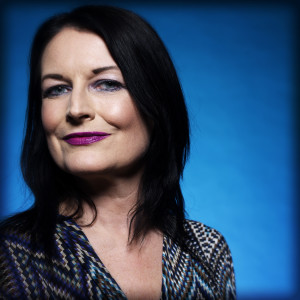
Ghislaine Boddington
Women Shift Digital, is an artist, dramaturg, curator and thought leader specialising in body responsive technologies, Ghislaine is recognised as an international pioneer advocating the use of the entire body as a digital interaction canvas for over 25 years. She has created live telepresence links between thousands of participants/audiences across the world for educational, performing arts and creative industries usage using her work to examine the representation of our physical selves and our identities in virtual environments. A co-creator and director of many art works exploring the hyper enhancement of our human senses through the digital and a lead director of international multi-partner projects, she co-curates Nesta’s FutureFest and is a Reader at University of Greenwich.
Elliot Grove, Founding Director, Raindance & Raindance Film Festival and the British

Elliot Grove
Independent Film Awards, who despite being unable to watch TV or films until his late teens due to the constraints of his Amish background, was curious about art and film. He worked first as a scenic artist (painting backgrounds) and started Raindance as a thought experiment: Could you make a movie with no training, no experience or no money. When British filmmakers like Christopher Nolan started making zero budget films, Elliot started Raindance Film Festival, as well as the British Independent Film Awards to showcase their work.
Russell Dalgleish, Serial entrepreneur and investor, Founder Exolta Capital Partners,

Russell Dalgeish
one of the UKs leading advisory firms, and is Chairman of WeAreTheFuture, the international entrepreneurship movement aimed at inspiring and connecting young business leaders.
Any questions?
Please contact: Carmen@haimediagroup.com
You can also find the ReVu app on social media. Here:
Twitter: @ReVuVideo
Facebook: facebook.com/revuvideo
Instagram: @ReVuVideo
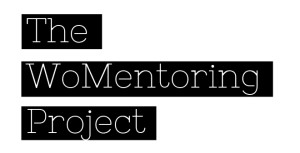
by Lisa Devaney | 15 Apr, 2014 | The WoMentoring Project
For many female writers starting off, affording access to support resources can be a barrier.

The WoMentoring Project debuts today!
Writing retreats are costly, classes are costly and sometimes difficult to manage with work and family life, and it isn’t easy figuring out how to connect with agents, publishers or other writers who could help guide a new writer through the process.
Stepping in to help female writers is The WoMentoring Project. Debuting today, this is an entirely volunteer effort driven by established female writers who want to help others. The group is a collection of writers, editors and literary agents who are pairing up with new UK female writers to serve as mentors, for free. Ignited by a conversation that started on Twitter, the idea got popular response from the female writing community and, quickly, the effort began.
The hope is that through this mentoring effort a new wave of female voices in the UK will emerge with powerful, diverse and stories to share.
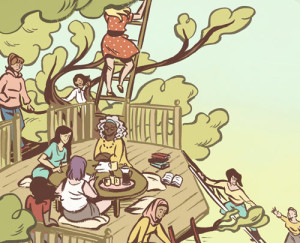
Women mentoring women.
What’s this about?
The mission of The WoMentoring Project is simply to introduce successful literary women to other women writers at the beginning of their careers who would benefit from some insight, knowledge and support.
It will work by having each mentor select their own mentee and it is at their discretion how little or much time they donate. They have no budget, it’s a completely free initiative and every aspect of the project – from the project management to the website design to the PR support – is being volunteered by a collective of female literary professionals. Quite simply this is about exceptional women supporting exceptional women.
Why is this needed?
While discussing the current lack of peer mentoring and the prohibitive expense for many new writers on Twitter – among a community of writers, editors and agents – the question was asked about who would be willing to donate a few hours of their time to another woman just starting out. The response was overwhelming – within two hours they had over sixty volunteer mentors.
For many involved, they received unofficial or official mentoring in starting out their careers, which helped them get ahead. The volunteers want to put their emphasis on ‘paying forward’ 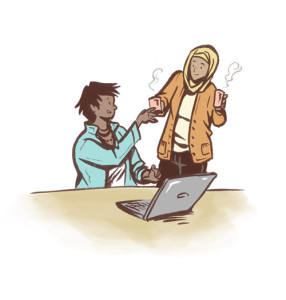 some of the support we’ve been given.
some of the support we’ve been given.
In an industry where male writers are still reviewed and paid more than their female counterparts in the UK, they want to balance the playing field. Likewise, they want to give female voices, that would otherwise find it hard to be heard, a greater opportunity of reaching their true potential.
How to Apply?
In an ideal world The WoMentoring Project would offer a mentor to every writer who needed and wanted one. Of course this isn’t possible, so instead they are trying to ensure the application process is accessible, while also ensuring that the mentors have enough information with which to make their selection.
Applicant mentees will submit a 1000 word writing sample and a 500 word statement about how they would benefit from free mentoring. All applications will be for a specific mentor and mentees can only apply for one mentor at a time. Selections will be at the mentor’s discretion.
Who’s involved?
Kerry Hudson, whose novel, Tony Hogan Gave Me An Ice Cream Float Before He Stole My Ma is leading The WoMentoring Project and has rallied a committed group of women writers, editors and publishers to join the effort, and here’s what some of these volunteers have to say about the project:
The reason I’m doing this is simple: mentoring can mean the difference between getting 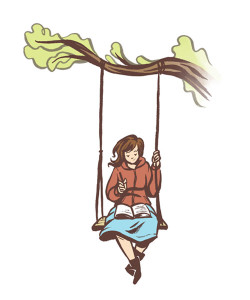 published and getting lost in the crowd. It can help a good writer become a brilliant one. But till now, opportunities for low-income writers to be mentored were few and far between. This initiative redresses the balance; I’m utterly delighted to be part of the project.
published and getting lost in the crowd. It can help a good writer become a brilliant one. But till now, opportunities for low-income writers to be mentored were few and far between. This initiative redresses the balance; I’m utterly delighted to be part of the project.
-Shelley Harris, author of Jubilee
I have only achieved the success I have with the help of others, and now I am keen to pass on that help. I particularly want to reach out to those who don’t have the privileges of wealth, status or existing contacts, but who have so much to gain and to give.
-Marie Phliips, author God’s Behaving Badly
I’m so pleased to be involved in the WoMentoring Project, and I can’t wait to meet my mentee. I know from my own authors how isolating an experience writing can often be, especially when you’re just starting out, and so I really wanted to be involved. I hope that knowing that there is someone on your side in those early days will give writers courage and confidence in their work.
-Alison Hennessy, Senior Editor at Harvill Secker
The WoMentoring project is the kind of opportunity I would have relished when writing my first novel. It’s founded in the spirit of paying it forward, and I’ll take real pride in sharing whatever experience I’ve gained with a mentee. I’ve benefited from the advice and encouragement of some truly inspirational writers, the right voice cheering you on can make all the difference when you’re in your solitary writing bubble. The formality of the mentoring arrangement also gives a sense of responsibility and focus – something that’s invaluable when you’re lost in the sprawl of a work-in-progress – and it’s beneficial to mentors too.
-Amylia Hall, author of The Book of Summers
My career as an editor has been immeasurably enriched by working with inspiring women writers, yet the world of publishing would have been inaccessible to me without the time and support I was given when first starting out. The WoMentoring Project is a wonderful, necessary thing and I’m very proud to be taking part in it.
-Francesca Main, Editorial Director, Picador
I wanted to get involved with this project because I’d like to help authors feel that whoever they are, and wherever they come from, they have a right to be heard.
-Jo Unwin of the Jo Unwin Literary Agency
What are the emerging female writers saying about The WoMentoring Project?
I’m interested in being mentored because although I think you have to make mistakes to learn, having someone who’s been there help you work out the ones with no value can be really useful. Most of all I’d like to have someone to push and challenge me on what makes me and my writing tick.
The idea of women sharing their skills and experience in a dynamic, nurturing way is a really important one given the lower profile given to female writers. Even though the mentoring is one to one a collective voice and resilience is still being built up – I think it’s a great idea that, for writers like me, will help get rid of some of the layers of doubt and creative loneliness that come with being a beginner.
-Clare Archibald
I’m on my third novel; I’ve had good notices from Faber, HoZ etc. but still not quite there. What I need is that final push. I especially need guidance on pacing, keeping the action pulsing along. I feel a mentor could be hugely beneficial in this process.
-Suzy Norman
How can you support The WoMentoring Project?
For it’s debut, the project would love your support on social media, so please tweet about it, share it with your Facebook freinds, post it on G+, LinkedIn, etc.
The hashtag is #WoMentoring and you can find them on Twitter at
@WoMentoringP.
If you are a member of the press and would like an an interview with the founder, please contact:
Lisa Devaney
lisa@haimediagroup.com
***Special thanks to the artist Sally Jane Thompson for creating the illustrations pictured here for The WoMentoring Project.

by Lisa Devaney | 26 May, 2009 | News
Hai Media Group helped Vodafone increase excitement for the first time its Vodafone Mobile Clicks contest ran in the UK. We encouraged UK mobile developers to submit entry applications to win 150K Euros for a mobile site or service concept. The competition closed 22 June 2009, and judges are now reviewing entries.

Vodafone Mobile Clicks
Vodafone Mobile Clicks is an international, high profile contest for the best mobile internet startup. The best mobile internet startup is selected by a professional jury in three different jury rounds. The main reason for the existence of Vodafone Mobile Clicks is to accelerate the innovation in the mobile internet sector in the UK and the Netherlands.















